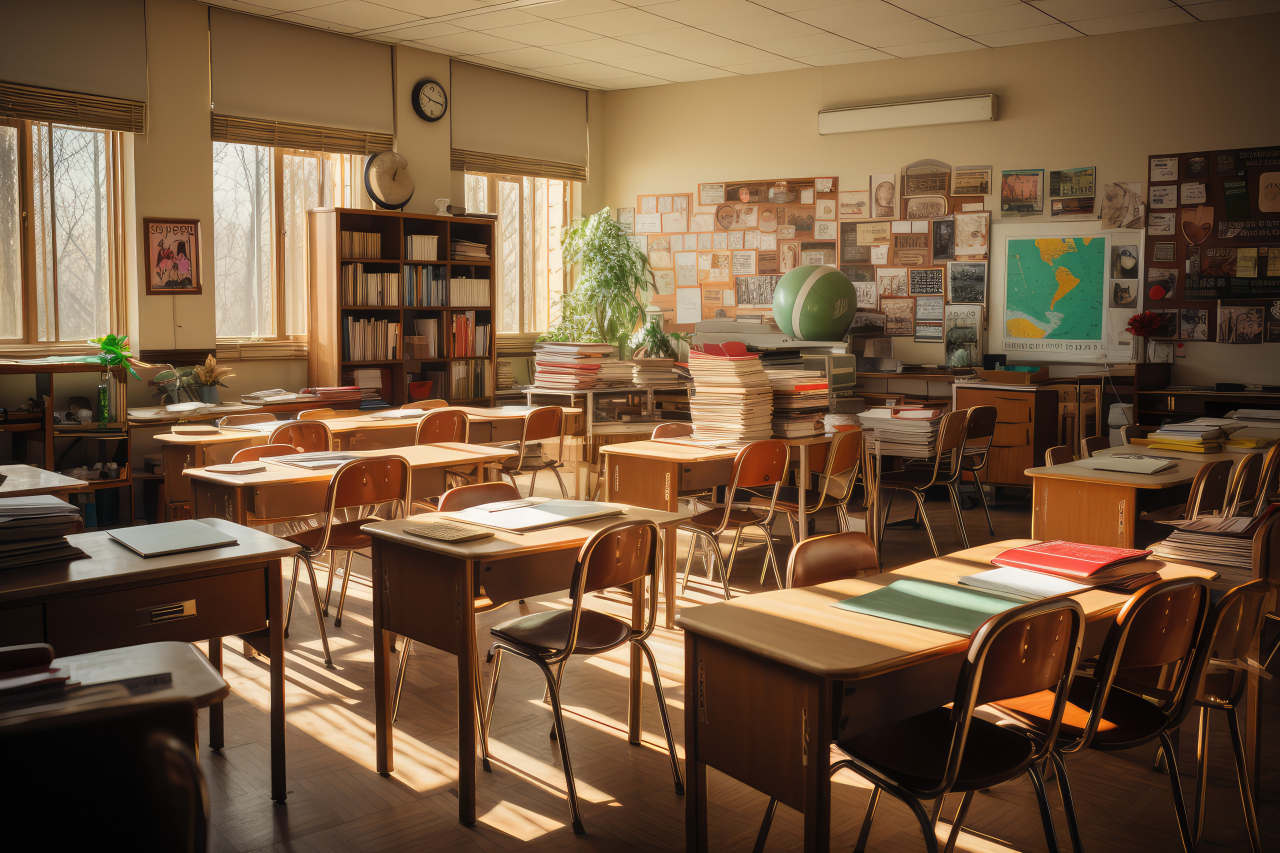New class policy leaves teachers open to child abuse accusations: experts
Parties divided over bill that grants teachers immunity from child abuse claims
By Park Jun-heePublished : Aug. 20, 2023 - 15:30

South Korea’s Education Ministry rolled out a set of new class policies last week to bolster waning teachers’ rights, but some experts have raised concerns that the measures would make teachers more vulnerable to child abuse accusations.
When verbal discipline fails or students pose a physical threat to teachers or other students, the ministry’s guideline states that teachers will be allowed to use force to physically restrain disruptive students. They can also confiscate phones from unruly students and remove students from classrooms.
The guideline, however, also allows students or their parents to raise any objections regarding a teacher’s teaching methods to the head of the school rather than directly filing complaints to the teacher.
Experts say the measures would not completely shield educators from excessive parental complaints.
“The scope of the new guidelines is too nebulous, meaning they wouldn’t be able to prevent teachers from excessive parental complaints since parents are also given the right to rock the boat. That will only make parents stick their noses into school affairs,” Kim Ji-yeon, an attorney at Young Lawyers for a Better Future, told The Korea Herald.
Kim noted that managing discord over student discipline could also be a major source of friction between teachers and the head of schools.
“Even if it’s the right and duty of teachers to discipline students for their wrongdoing, headmasters can instruct teachers to be lenient on students," Kim said. Teachers would come under pressure to follow orders by some principals hoping to avoid responsibility.
Park Nam-gi, a professor at Gwangju National University of Education, pointed out that the policies lack giving teachers the respect they deserve.
“Parents and students will make an objection for whatever the reason is. In the end, teachers will be tied up with more work because headmasters will have to cross-check with teachers on what happened in class, which will only put them in a disadvantaged situation,” Park said.
“Teachers usually discipline students with emotion, which means they are more likely to speak with a highly sensitive and stricter tone. But if a parent unjustly files a complaint to the head of the school for that, fair discipline could turn into child abuse claims,” he added.
Korean schools need to adopt in-house guidance counselors so that they can respond to disruptive behaviors when they arise and help students learn.
“The Education Ministry should inject more financial and human resources if they are aiming to create a better learning environment. Or else, the new measures will again drive teachers to the edge of a precipice,” Park said.
In response to the rollout, teachers have demanded more feasible measures. Thousands of teachers have been holding sit-in protests in Seoul on weekends lambasting the new scheme, saying it falls short of what they actually need.
Meanwhile, the National Assembly is speeding up efforts to pass a bill within this month that grants teachers immunity from child abuse claims.
According to the ministry and the National Assembly, the legislation review subcommittee on Thursday met with government officials, ruling and opposition parties and superintendents of each education office to discuss amending the Act on the Improvement of Teachers’ Status and Elementary and Secondary Education Act.
Politicians, however, remain divided over keeping a record of students’ infringement of teachers’ rights in report cards.
While the government and the ruling party stressed the importance of strengthening teachers’ rights by responding more strictly to unruly students, those who oppose it expressed concerns that it could worsen the relationship between students and teachers.







![[Weekender] How DDP emerged as an icon of Seoul](http://res.heraldm.com/phpwas/restmb_idxmake.php?idx=644&simg=/content/image/2024/04/25/20240425050915_0.jpg&u=)


![[KH Explains] No more 'Michael' at Kakao Games](http://res.heraldm.com/phpwas/restmb_idxmake.php?idx=644&simg=/content/image/2024/04/28/20240428050183_0.jpg&u=20240428180321)








![[Herald Interview] Mistakes turn into blessings in street performance, director says](http://res.heraldm.com/phpwas/restmb_idxmake.php?idx=652&simg=/content/image/2024/04/28/20240428050150_0.jpg&u=20240428174656)
